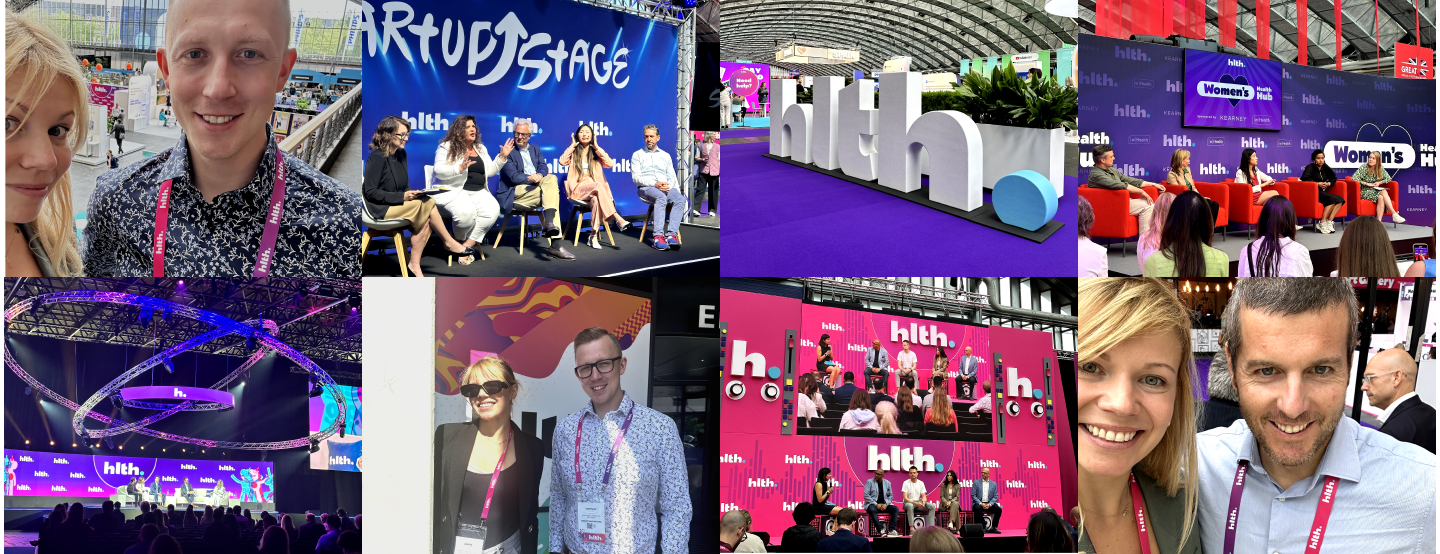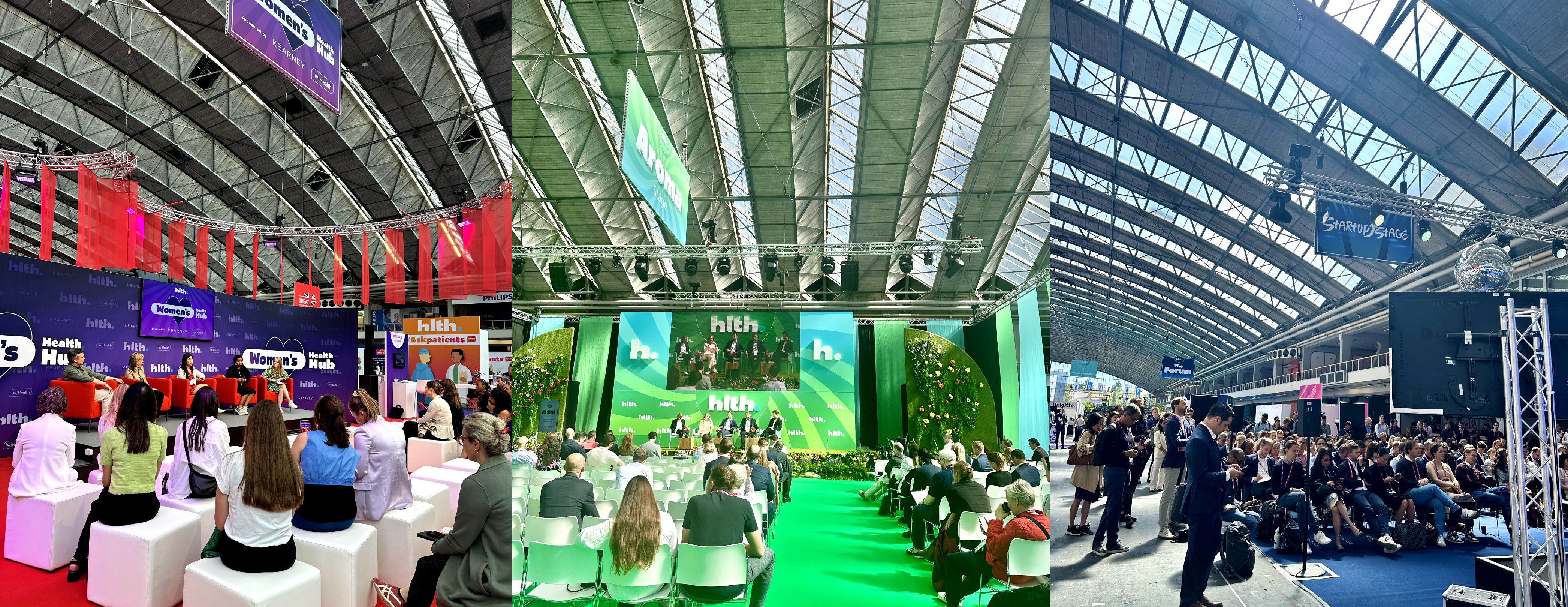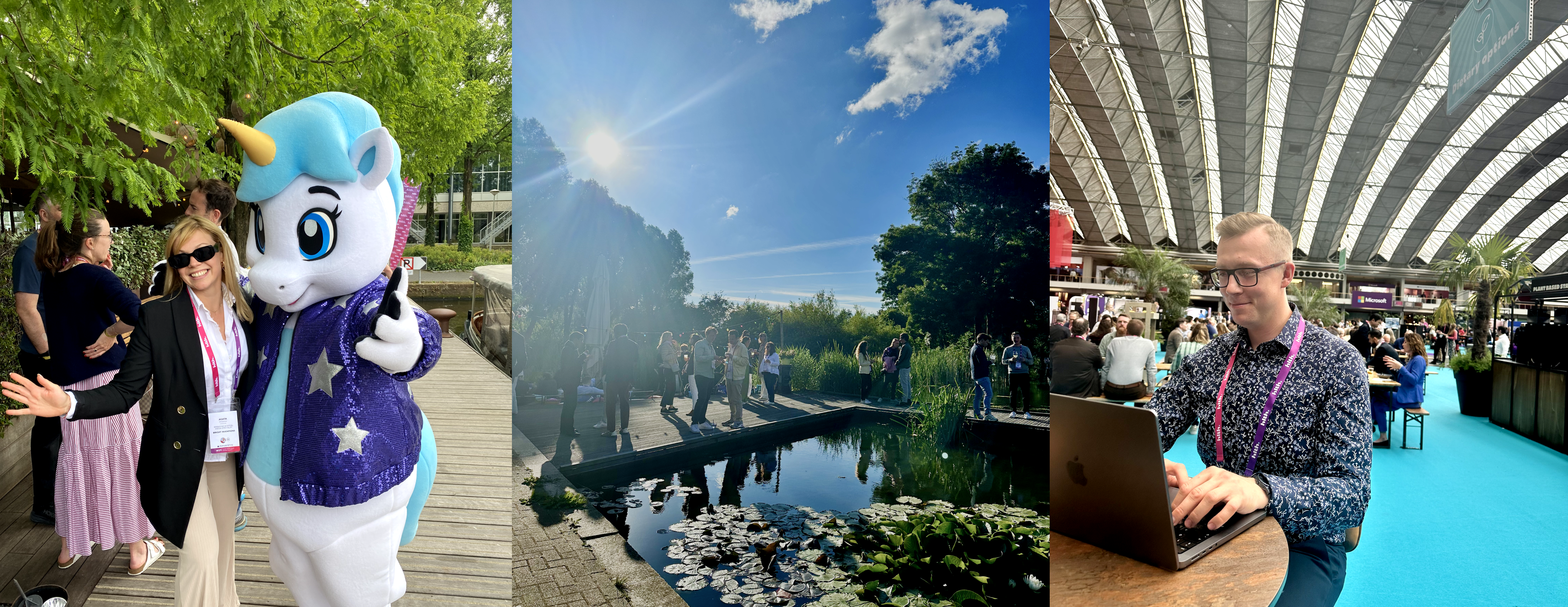HLTH Amsterdam 2024 - Was it Worth Attending the eHealth Event?
HLTH, the largest health information and technology event in the USA, has now expanded to Europe, choosing Amsterdam for its strong transport links, English proficiency, and attractive amenities. Let's examine whether this European version lived up to its reputation.

Organisational aspects
The event was planned to be the biggest health innovation event in Europe. While I don't have the exact figures, in my opinion, it was undoubtedly one of the best events focused on this topic.
The venue was well-designed, featuring seven stages for keynotes and discussions, a medium-sized space for exhibitors, and a nice seating for work, networking, or relaxation. There was also a dedicated space for meetings.
A useful feature was the event's app, which assisted with networking, program navigation, site orientation, and participant connections. Impressively, the app functioned well, which is IMHO a novelty in the world of conference apps.
The additional events, such as boat trips, walking tours, yoga sessions, beach parties, and concerts, were exceptional. The selection of speakers and topics was top-notch.
Well, the additional attractions were great, but was the substantive level up to par?

Business value, covered topics & networking
The organizers chose often-neglected topics like taboos, significant e-health/medtech challenges, and important innovations, creating a program that was engaging, educational, and thought-provoking.
Positioning the women's health stage at the center and naming it "the Heart Stage" was a strategic move, emphasizing the importance of this topic.
The organizers deserve applause for highlighting solutions related to pressing issues, such as the "Enough" stand developed by Katie White, who is on a mission to deter rape.
Discussions at the Heart Stage focused on women's health needs, highlighting how women often neglect their own health and are hesitant to discuss it. This makes it crucial to address women's health as a priority.
Panels also covered menopause, menstrual, and maternal care, which are considered important for future innovations. The Heart Stage hosted LGBTQ-related discussions as well.
The conference didn't shy away from topics like the use of psychedelic drugs in mental health treatments.
Interoperability was another significant theme, discussed both in presentations and informally. As MD MBA Adam Brown noted, achieving interoperability is essential for realizing the goals of value-based care by improving quality, reducing costs, and enhancing access.
Having a system that's able to communicate even across vendors has a benefit to a patient. It's hard to get to a place in health care that we are truly exercising the goals or realizing the goals of value-based care where we're improving quality and reducing costs and improving access without interoperability of our digital systems. And so that's one of the big challenges.
AI was a hot topic but didn't dominate the exhibitor space or presentation stages, which is often the case at this and last year's conferences.
Aahuti Rai's remark is a good summary of the event’s approach to AI:
I'm not really so buzzed about specific technologies. It's more about how you put them to use and make them relevant for people. For me, it's never been about the actual technology, it's about what the technology enables.
The pre-conference day, "Day 0," included workshops focused on specific European digital health markets, providing valuable insights into the legal and regulatory challenges and differences across countries. This day was especially beneficial for startups and scale-ups planning to expand their products.
The event also delved into the role of internet influencers and social media in patient education, questioning the balance between promoting healthy lifestyles and proposing unrealistic beauty standards.
The area to improve
And now a few words of criticism. As much as networking is definitely the strongest aspect of the event, the organizers should improve the organization of meetings so that in the next edition, participants can make the most of it, reducing the time and stress of finding their interlocutors.

In summary, HLTH Europe was an invaluable networking hub filled with discussions addressing digital health needs and challenges. It's an essential venue for anyone looking to inspire and address challenges in their health tech solutions. And it was definitely worth attending.

